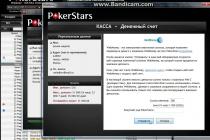If the supplier violated the obligation, delivered the goods not in full, the customer charged a penalty, the supplier paid everything, the customer must then return the contract security to full size?
Answer
Thus, the Customer has the right to withhold a penalty from the contract performance security if the Supplier violated the terms of the contract during its execution (at the same time, it is better that the contract contains a condition that you withhold money from the security if the counterparty violates the contract). If the participant himself pays the penalty to the Customer, then the Customer must return to him the security for the performance of the contract (pledge of funds) back in full.
Rationale
Recommendation: How to ensure the execution of a contract under 44-FZThe customer does not sign the contract until he receives the guarantee from the winner. Moreover, the counterparty himself chooses in what form to deposit the contract security - to provide a bank guarantee or transfer money to the customer's account. The procedure in which the contract is provided is regulated by Article 96 of Law No. 44-FZ.
Include the requirement to provide contract security in the notice or invitation to participate in the procurement, documentation and draft contract. Such a rule is spelled out in part 1 of article 96 of Law No. 44-FZ.
What amount of contract security to establishThe size of the contract security will be from 5 to 30 percent of the NMCC. Law No. 44-FZ provides for two exceptions:
NMTsK exceeds 50 million rubles. - establish security in the amount of 10 to 30 percent of the NMCC, but not less than the advance;
Advance payment over 30 percent of IMCC – set security at the amount of advance payment.
If the participant has reduced the NMTsK by 25 percent or more, the customer applies anti-dumping measures, which are provided for in Article 37 of Law No. 44-FZ.
Such requirements are spelled out in part 6 of article 96 of Law No. 44-FZ.
Situation: during the purchase, the winner reduced the price of the contract. Whether to change the amount of security that the customer prescribed in the notice and documents
No, don't change. Set the amount of security on the basis of the NMTsK, and not the final cost of the contract. This is spelled out in part 6 of article 96 of Law No. 44-FZ.
Situation: will the customer be fined for not requiring contract security. The customer was supposed to establish a requirement for contract security, but did not
Yes, they will be fined. Have not established a requirement for securing a contract, be prepared to pay a fine of 3,000 rubles. Installed, but not correctly - from 5,000 to 30,000 rubles. The conclusion follows from parts 4 and 4.2 of article 7.30 of the Code of the Russian Federation on administrative offenses. The position was confirmed by the decisions of the FAS dated January 9, 2017 No. KGZ-004/17, dated October 4, 2016 No. KGZ-430/16.
How does the winner secure the contract?The winner of the purchase chooses how to secure the contract: provide a bank guarantee or deposit money into the customer's account at the Federal Treasury.
Attention: do not tell the procurement participant how to secure the contract. The winner himself will choose: to provide a bank guarantee or to make a cash deposit (part 3 of article 96 of Law No. 44-FZ).
Otherwise, the responsible employee will pay a fine of 5,000 to 30,000 rubles. Responsibility is provided for by part 4 of article 7.30 of the Code of Administrative Offenses of the Russian Federation.
The winner of the purchase has the right to change the form in which the contract provides. When replacing a bank guarantee with a cash deposit or vice versa, the counterparty has the right to reduce the amount of the guarantee by the amount of obligations that it has fulfilled. Such a right is provided for by Part 7 of Article 96 of Law No. 44-FZ.
The counterparty changes the size and form of security only after it has started to execute the contract. The parties draw up a partial acceptance of goods, works or services. Such clarifications are given by the Ministry of Economic Development of Russia in letters dated February 6, 2015 No. D28i-273 and dated February 23, 2015 No. D28i-361.
Conclude the contract when the winner deposits the security. A participant who does not provide a guarantee or a deposit on time is recognized as evading and entered in the register of unscrupulous suppliers - RNP. The period by which the winner must deposit the security is specified in the procurement documentation. This is stated in parts 4 and 5 of article 96, part 2 of article 104 of Law No. 44-FZ.
If you conclude a contract without security, you violate part 4 of article 96 of Law No. 44-FZ. The responsible employee will pay a fine from 5,000 to 30,000 rubles, the organization - from 50,000 to 300,000 rubles. Punishment is provided for by Part 1 of Article 7.32 of the Code of Administrative Offenses of the Russian Federation.
Example: on the inclusion of information in the RNP
The PFR branch in the Ulyanovsk region held an auction for the supply of office supplies. The company "TenderKants" won. Within the period specified by the customer in the contract, the winner did not provide a bank guarantee or collateral. The customer recognized the participant as having evaded the conclusion of the contract. The basis is part 5 of article 96 of Law No. 44-FZ.
TenderKants explained that the accountant did not send the money due to inattention. However, OFAS recognized that the customer made a lawful decision, since the participant violated the terms of the contract without good reason - through negligence. Antitrust Service entered "TenderKants" in the register of unscrupulous suppliers for two years.
Situation: to whose account the winner will transfer the contract security if the customers held a joint auction
The winner of the joint bidding will transfer the security to the account of each customer in the volumes stipulated by the draft contracts. Conclude a contract with the winner only after you receive a guarantee or funds to the account. Even if they made a joint purchase.
Two or more customers have the right to conduct joint bidding. Each customer concludes a contract with the winner. This is spelled out in part 1 of article 25 of Law No. 44-FZ and paragraph 8 of the Rules, which were approved by the Government of the Russian Federation by Decree No. 1088 of November 28, 2013.
The customer concludes the contract after the winner provides the security. The winner also provides a bank guarantee to each participant (part 4 of article 96 of Law No. 44-FZ, letter of the Ministry of Finance of Russia dated March 30, 2016 No. 02-02-04 / 18024).
Situation: whether the winner has the right to assign the obligation to provide contract security to a third party
Yes, the winner has the right to impose the obligation to pay security on a third party. At the same time, conclude a contract only if the payer has written in the payment order that the security was provided for the participant, and indicated the name of the winner, the registration number of the purchase or the contract number, other information that indicates that the security relates to a specific purchase and the winner. The conclusion follows from paragraph 1 of Article 313 Civil Code. The position was confirmed by the decision of the OFAS for the Republic of Komi dated March 27, 2014 No. 04-02 / 2548, the decision of the Arbitration Court of the Moscow District dated May 13, 2016 No. A40-126679 / 2015.
How to make a cash depositThe winner of the purchase provides the contract with money that is deposited into the customer's account in the Federal Treasury. It is impossible to transfer money to accounts in commercial banks (part 3 of article 96 of Law No. 44-FZ, letter of the Ministry of Economic Development of Russia dated September 11, 2015 No. D28i-2613).
The counterparty transfers money in full or in parts. But sign the contract when the winner transfers the entire amount. Even if the winner submits a payment, do not sign the contract until the money is received in the personal account in the Treasury. Such an explanation is given by specialists of the Ministry of Economic Development of Russia in a letter dated September 30, 2014 No. D28i-1889.
Situation: Is the customer entitled to demand that the contract be secured in the form of winner's liability insurance?
No, not right. Demand to secure the contract either with a bank guarantee or with money to an account in the Federal Treasury. These two methods are provided for by Part 3 of Article 96 of Law No. 33-FZ. It is unlawful to demand insurance, so the customer's official will pay a fine of 5,000 to 30,000 rubles. (part 4 of article 7.30 of the Code of Administrative Offenses of the Russian Federation).
Instead of insurance, write in the contract that the winner will pay the penalty at the expense of security if he violates the terms of the deal.
Situation: where can a municipal unitary enterprise open an account so that the participant transfers the contract security, in the Treasury or commercial bank
In a commercial bank, if you make a purchase at the expense of earned funds. If you received subsidies from the budget, open an account with the Federal Treasury. Base: unitary enterprise- This commercial organization with an independent balance, which has the right to open bank accounts on the territory of Russia and abroad (part 1, article 2, part 3, article 3 of Law No. 7-FZ, letter of the Ministry of Finance of Russia dated March 30, 2016 No. 02-01-10 / 18023).
The customer has the right to use an account opened for similar purposes when making purchases under Law No. 223-FZ.
Situation: is it obligatory for the Federal State Unitary Enterprise to open an account with the Federal Treasury, to which the participants will transfer the contract security
No, not necessarily. Unitary enterprises, as a customer under Law No. 44-FZ, have the right to open an account with a commercial bank. Reason: unitary enterprises do not receive budget resources, also unitary enterprises have the right to open bank accounts in Russia and abroad in the manner prescribed by central bank RF. The conclusion follows from Article 78.2 Budget Code. The position was confirmed by the Ministry of Finance of Russia in a letter dated March 30, 2016 No. 02-01-10/18023.
Situation: whether to require the winner of the auction to confirm the transfer of the contract security by a payment order with a bank note or a certified copy
No. The customer is not entitled to require the winner to confirm the transfer of money with the original payment order or a copy certified by the bank. If you set a requirement, then pay a fine - 3000 rubles. This follows from part 3 of article 70 of Law No. 44-FZ and part 4.2 of article 7.30 of the Code of Administrative Offenses.
How to accept a bank guaranteeThe participant sends the guarantee to the customer along with a signed copy of the contract. If you are running an electronic auction, the winner will place the guarantee in the EIS along with a signed copy of the contract. This is stated in part 3 of article 54, part 3 of article 70 of Law No. 44-FZ.
Consider the bank guarantee within three working days after receipt. Accept the warranty or reject it. Guarantees are provided by banks that the Ministry of Finance has included in a special list. The Ministry publishes the list on the official website. Do not accept guarantees from banks that are not included in the list. Such rules are established by part 1 of article 45 of Law No. 44-FZ and part 3 of article 74.1 tax code RF.
There are two ways to issue a guarantee:
in writing, with all sheets of the bank guarantee numbered, stitched, signed, affixed with the seal of the bank;
an electronic document with enhanced unskilled electronic signature an employee who acts on behalf of the bank.
The procedure is specified in the Additional Requirements for the Guarantee, which were established by the Government of the Russian Federation by Decree No. 1005 of November 8, 2013.
The guarantee states:
the amount that the bank will pay to the customer;
obligations of the participant guaranteed by the bank;
the bank's obligation to pay the customer a penalty of 0.1 percent of the guarantee for each day of delay;
the condition under which the bank's obligations are fulfilled when the money is credited to the customer's account;
duration of the guarantee;
the condition that the bank will conclude a guarantee agreement after you sign the contract with the winner of the purchase;
the right of the customer to demand in writing to pay under the guarantee if the supplier performed poorly or did not perform the contract;
the condition that the commission for money transfer is paid by the bank;
the ability to transfer the right to claim money under the guarantee if the customer changes;
documents that the customer will submit to the bank in order to receive money under the guarantee.
The requirements for a bank guarantee are specified in part 2 of Article 45 of Law 44-FZ, and the list of documents was approved by the Government of the Russian Federation by Decree No. 1005 of November 8, 2013, hereinafter - Decree No. 1005.
The bank is not entitled to prescribe three conditions in the guarantee:
The guarantor bank will not pay the customer unless the customer submits a notice that the supplier has breached the contract or that the contract has been terminated. Exception - if the notification is provided for by the contract or legislation;
the customer will report to the bank how the contract has been executed;
the customer will submit to the bank documents that are not in the list approved by Decree No. 1005.
Prohibitions are established by Decree No. 1005.
The bank guarantee cannot be revoked. The validity of the guarantee must exceed the term of the contract by at least a month. This is provided for by part 2 of article 45 and part 3 of article 96 of Law No. 44-FZ.
When to void a warranty
Reject a warranty that:
not included in the register of bank guarantees;
does not contain the terms of parts 2 and 3 of Article 45 of Law No. 44-FZ;
does not comply with the requirements of the notice or procurement documents.
The grounds for refusal are prescribed in part 6 of article 45 of Law No. 44-FZ.
If you do not accept the guarantee, inform the counterparty within three working days. In the notice, state the reason why the warranty was refused. Then submit information to the register of bank guarantees, for this place in the EIS:
the reason and code of the reason why the guarantee was refused;
the number and date of the supplier's notice of refusal, an electronic or scanned document that was sent to the supplier.
Such a procedure is provided for in part 7 of article 45 of Law No. 44-FZ and paragraphs 10 and 23 of the Procedure, which was approved by the Ministry of Finance of Russia by order of December 18, 2013 No. 126n.
To place information in the EIS, use the "User's Guide. Procurement management subsystem in terms of the register of contracts and the register of bank guarantees.
What is the register of bank guarantees
Bank guarantees are included in a special register in the EIS. Maintains a register of bank guarantees Federal Treasury. This is spelled out in part 8 of article 45 of Law No. 44-FZ and paragraph 3 of the Rules from Decree No. 1005.
The register of bank guarantees includes:
name, address, TIN of the guarantor bank;
name, location, TIN of the supplier;
name, address, TIN of the customer;
identification code purchases;
copies of documents on changing the guarantee or refusing to accept the guarantee, if any;
the amount of the guarantee;
warranty period;
a copy of the guarantee, unless the guarantee is included in the closed register.
This is spelled out in part 9 of article 45 of Law No. 44-FZ and paragraph 4 of the Rules approved by Decree No. 1005.
If the contracts contain state secrets, the Treasury includes a bank guarantee in a closed register. This is indicated by part 8.1 of Article 45 of Law No. 44-FZ.
The bank issues a guarantee and includes the information in the register in one day. An employee who acts on behalf of the bank signs information and documents with an enhanced electronic signature (clauses 5 and 8 of Regulation No. 1005).
Situation: how to check the expiration date of a bank guarantee if the customer has not set the expiration date of the contract
Consider that the expiration date of the contract is the last date when the customer must pay the contractor remuneration (part 3 of article 96 of Law No. 44-FZ, paragraph 3 of article 425 of the Civil Code of the Russian Federation).
If you have not set a validity period in the contract, then be prepared to prove your position in the control body (decision of the Krasnoyarsk OFAS dated August 20, 2015 No. 992).
When and how to return the contract securityReturn the security in two cases: the tender did not take place, and the counterparty fulfilled the terms of the contract.
The competition did not take place
If the tender did not take place, return the security within five working days. At the same time, the reason that the purchase did not take place is that the parties did not sign the contract within 30 days due to a court decision or other compelling circumstances. This rule is enshrined in part 9 of Article 96 of Law No. 44-FZ.
The counterparty performed the contract without violations
Return the security within the time specified in the contract. This is required by Part 27 of Article 34 of Law No. 44-FZ.
Specialists of the Ministry of Economic Development indicate that the customer returns the money when the winner fulfills the main obligation under the contract. Return the money, even if the object of purchase is still under warranty. This rule does not work if the parties provided in the contract that the customer returns the money when the warranty period expires (letter of the Ministry of Economic Development of Russia dated December 31, 2014 No. D28i-2865).
The contractor violated the terms of the contract
Return the security partially or not at all, but write down such an opportunity in the contract.
The counterparty who violated the terms of the contract pays the customer a penalty. The customer either requires payment of fines, penalties, or withholds the penalty from the deposit. This is provided for by part 6 of article 34 of Law No. 44-FZ.
If the contract is secured by a bank guarantee, demand the amount of the penalty from the guarantor bank. Such an explanation is given by the Ministry of Economic Development of Russia in a letter dated February 15, 2016 No. D28i-416.
Write in the contract that you will withhold money from the security if the counterparty violates the contract. The condition will help to avoid disagreements. After all arbitrage practice for the recovery of a penalty from the security is ambiguous. So, Arbitration court Khabarovsk Territory on November 9, 2015 indicated that the customer can withhold the fine only if he writes such a condition in the contract. Thirteenth Arbitration Court of Appeal On May 21, 2015, it decided that the customer has the right to withhold a penalty from the security, even if he did not prescribe a condition in the contract.
Situation: is it necessary to fix a payment order for the return of the contract security in the EIS
No, you do not need to attach a payment order for the return of the contract security in the EIS. The customer places in the UIS information on payment for the contract, on the calculation of penalties and a document on the acceptance of goods, works, services. This is stated in part 2 of article 103 of Law No. 44-FZ.
Situation: should the customer return the contract security if the winner evaded the conclusion of the contract
Yes, it should. If the winner is found to have evaded the conclusion of the contract, then the customer must withhold only the security of the application. The security for the performance of the contract must be returned. The conclusion follows from paragraph 6 of part 6 of article 44 of Law No. 44-FZ, paragraphs 1 and 2 of article 352, paragraph 1 of article 1102 of the Civil Code of the Russian Federation.
In what cases is it not necessary to require contract security?Do not demand to secure a contract when:
conclude a contract with state and municipal government institutions;
procure credit services;
state-financed organization, the unitary enterprise enters into a contract for a bank guarantee.
This is stated in part 8 of article 96 of Law No. 44-FZ.
The customer has the right, but not the obligation, to demand security for the contract in three situations.
1. The customer conducts a request for quotations and the NMTsK is less than 500,000 rubles.
2. The customer conducts a request for proposals and the subject of the contract:
o sports equipment and equipment for Olympians;
o drugs by decision of the medical commission;
o handicrafts;
o services to protect the interests of the Russian Federation in international courts.
3. The customer concludes a contract with a single supplier for the purchase of:
o up to 100,000 rubles;
o up to 400,000 rubles. – for educational and cultural institutions;
o utilities;
o goods, works and services in case of accidents and emergencies;
o cultural values for state funds;
o services for the management or maintenance of MKD;
o travel, housing, meals for employees who were sent on a business trip;
o non-residential premises into state or municipal property;
o treatment of Russians abroad;
o enumerator services;
o otherwise.
A complete list of cases when it is not necessary to require a contract is prescribed in part 2 of Article 96 of Law No. 44-FZ.
Situation: a federal state budgetary institution is participating in a competition to create a website for the Ministry of Economic Development. Does the customer have the right to demand from the Federal State Budgetary Institution to ensure the execution of the contract
Yes, right. The customer does not require to secure a contract when he concludes a contract with a state or municipal government institution. This is spelled out in part 8 of article 96 of Law No. 33-FZ. The participant is also not subject to part 2 of article 96 of Law No. 44-FZ. Therefore, upon winning the tender, the Federal State Budgetary Institution is obliged to provide a bank guarantee or deposit money into the customer's account, as provided for by part 4 of article 96 of Law No. 44-FZ.
Situation: request for quotations from NMTsK 230,000 rubles. did not take place, as only one application met the requirements. Whether it is necessary to require enforcement of the contract if the customer enters into a contract with a single supplier
Required if the requirement is specified in the notice.
The customer has the right, but is not obliged to establish a requirement to secure a contract when he conducts a request for quotations with the NMCC up to 500,000 rubles. This rule is spelled out in part 2 of article 96 of Law No. 44-FZ. If such a requirement is established in the notice and documents, the supplier is obliged to provide security.
The requirement applies to the sole supplier, and to the winner, and to the participant, depending on how the auction goes. Do not selectively set a requirement only for the only supplier with whom you conclude a contract under clause 25 of part 1 of Article 93 of Law No. 44-FZ.
Situation: is the customer obliged to require a contract with a supplier up to 100 thousand rubles, if an advance payment of 30 percent is provided
The customer has the right to demand the security of the contract, which he will conclude with the supplier in the amount of up to 100 thousand rubles, even if an advance payment has been established in the contract. The conclusion follows from Part 2 of Article 96 of Law No. 44-FZ. A similar position is expressed in the letter of the Ministry of Economic Development of Russia dated March 20, 2015 No. D28i-793.
Situation: does the purchase of financial lease (leasing) services fall under the exception when the customer does not establish contract security
No, it doesn't. When purchasing finance lease or leasing services, establish a requirement to secure a contract.
The customer is required to establish a requirement that the winner secure the contract. At the same time, Law No. 44-FZ provides for exceptions. One of the exceptions is the purchase of loan services (part 1, paragraph 2, part 8, article 96 of Law No. 44-FZ).
The essence of the financial lease agreement is that the lessor provides the lessee with property for a fee for temporary possession and use. In turn, by loan agreement the lender provides the borrower with money, and the borrower undertakes to return the money received and pay interest on it. Therefore, the exception that the provisions on contract security do not apply to the procurement of services to provide a loan does not apply to the procurement of finance lease services (Articles 665, 819 of the Civil Code of the Russian Federation).
Situation: whether to require the supplier to secure the contract if the request for quotations did not take place and the notification does not provide for security
No, don't ask for security. When a single bid is submitted for a request for quotation, or only one meets the requirements of the notice, acknowledge that the purchase did not take place. Sign a contract with a supplier under clause 25 of part 1 of article 93 of Law No. 44-FZ. This item is not included in the list of exceptions when the customer has the right not to establish contract security. However, the notice does not stipulate that the customer must secure the contract, so do not require a cash deposit or bank guarantee from the supplier. The conclusion follows from part 14 of article 78, article 79, part 2 of article 96 of Law No. 44-FZ. The position is confirmed by the Ministry of Economic Development in a letter dated October 27, 2016 No. D28i-2951
A bank guarantee is a financial instrument designed to ensure the fulfillment of obligations undertaken by one party to another, a kind of "insurance" of the buyer from an unscrupulous seller. Physically, it is a document on paper or in in electronic format, containing information about the parties to the contractual relationship, the obligations of the contract to be fulfilled, the terms of provision, the signatures of authorized persons.
The procedure for issuing and using a bank guarantee involves the participation of three parties:
- Principal- a seller, supplier of goods or services, he is also a contractor or performer - an individual or legal entity licensed to carry out a certain type of activity.
- Guarantee- a bank from approved by the Ministry of Finance a list accredited for issuing bank guarantees.
- Beneficiary- customer, buyer, recipient of goods or services, he is also the beneficiary.
The purpose of the bank guarantee is to stimulate the supplier to fulfill the agreement with the highest quality in compliance with the agreed deadlines, leaving him the opportunity to operate working capital. In case of violation of contractual agreements, he will be punished literally with a ruble, and the buyer will be able to compensate for his losses and risks by covering them at the expense of the guarantor. The benefit of the bank is to receive a commission for the publication of a document, its extension or amendment. In case of occurrence credit debt, the bank receives interest for the entire period of debt repayment by the principal.
Another important point is to eliminate the corruption component in the conduct of auctions, tenders and tenders. This type of security is mandatory public procurement, according to Federal Law No. 44-FZ.
Return by "BG"
Among the variety of "BG" in the procedure of state and municipal procurement is most often used tender guarantee , performance guarantee, guarantee returnpayment.
To participate in a public procurement tender, the seller submits an application and makes a cash contribution as confirmation of the seriousness of his intentions to the account specified by the customer. The amount of this financial security usually ranges from 0.5% to 5% of the contract price. It happens that the applicant does not have such free funds. In order not to withdraw funds from circulation and, at the same time, not to miss good deal, the supplier can provide collateral bank guarantee .
After the announcement of the results of the tender, all the losers are returned their money. The winner will receive the deposit back only after signing the contract. If suddenly the supplier refuses to sign the contract, the entire mortgage amount will go to the buyer.
If the organization has won the tender, has a full package of duly executed documents, is confident in its product and intends to sign an agreement, it is obliged to provide the customer with bank guarantee of performance of the contract . Without it, the parties will not be able to conclude an agreement. The amount of security can be up to 30% of the declared contract price.

What are the grounds for a return?
Conditions for the return of "BG" and the deposit
A bank guarantee provided as collateral is returned in the following cases:
- The bidder made mistakes or violated the application procedures prior to the start of the auction.
- The supplier withdrew the application for participation before the end of the deadline.
- The customer canceled the definition of the supplier within the allowed time before the appointed date, i.e. changed his mind about choosing a potential performer for some reason.
- The tender has been completed, the protocols have been drawn up, the supplier has been selected. All, except the winner, receive their deposits back within 3 to 5 days.
- The competition was declared invalid due to court delays or force majeure, which prevented the signing of the contract for more than 30 days.
- The contract was signed, but is now terminated by mutual agreement of the parties or at the initiative of the customer without any claims on his part, despite the fact that the original conditions may not be met.
- The parties adopted an agreement to replace "BG" with financial support. (In practice, the opposite often happens: cash change to a warranty contract).
- The terms of the contract are fully fulfilled by the principal, and the beneficiary does not have any claims.
The return of financial security under 44 FZ (clause 13 of article 44) is not made if:
- The participant who won the tender evades the conclusion of the transaction.
- The participant grossly violated the provisions of the law on tenders, auctions and auctions.
- The deadlines for withdrawing or changing the application have been disrupted.
Such participants earn a bad reputation for themselves and run the risk of being on the list of unscrupulous performers, depriving themselves of the opportunity to enter into lucrative contracts in the near future.
Speaking about the return of the deposit, they usually mean finances. The bank guarantee document itself is not given away, it simply becomes invalid after the terms of the contract are fulfilled.
Conditions for the return of "BG" performance of the contract
The entire period of time during which the contractor must fulfill its obligations, the guarantee agreement is with the beneficiary. However, under certain circumstances bank guarantee performance of the contract may return to the bank. The provisions on the return, withdrawal and termination of the "BG" are spelled out in the Law on the contract system No. 44-fz.
The law does not provide for a full refund of the guarantee, as it must be irrevocable. Neither the principal nor the guarantor can return or revoke the agreement. This is the main contradiction with the Civil Code of the Russian Federation (paragraph 23 of Article 378), which establishes the reasons for the return of a bank guarantee:
- The customer received the full guarantee amount, which was discussed in the agreement. For example, as compensation for losses due to the contractor's dishonesty.
- Warranty expired , which usually coincides with the term of the concluded contract. If the term of the latter is extended, the customer should follow the change in the period of validity of the agreement. Under an overdue guarantee, the beneficiary loses the opportunity to receive compensation even in court.
- The beneficiary notifies the guarantor in writing that he waives the rights under the agreement and releases the bank from obligations under the guarantee. And.
- The beneficiary, on his own initiative, renounces his rights under the guarantee agreement with the subsequent return of the document to the financial institution .
Obviously, only the beneficiary has the privilege and the opportunity to return the guarantee, refusing the possibility of receiving compensation. In the first three cases, it is not necessary to return the paper carrier to the guarantor.
In addition to these four, there are general reasons for the return of a 44 FL contract guarantee, some of which were mentioned in the list under the conditions for the return of the deposit:
- Execution of the contract in full and on time. The supplier fulfilled all the agreed transactions. The customer is satisfied. All documents, acts of work performed and payment orders were signed. The beneficiary can return the guarantee to the bank.
- Termination of the contract at the initiative of the customer or by agreement of both parties. If there are no claims against the contractor, the guarantee is simply cancelled. If there are unsatisfactory moments, the beneficiary receives compensation for losses at the expense of guarantee funds. And the principal settles with the guarantor. If during the transaction the supplier received advance payment under a bank guarantee, the return algorithm is similar.
The period for the return of the bank guarantee is governed by the provisions of the concluded agreement and can last up to 45 days. In practice, this period is reduced to 5 days.
Conditions for withdrawing a guarantee by a bank
The bank should not interfere in the relationship between the supplier and the buyer. He simply undertakes to pay if the appropriate event comes. The essence of this financial instrument- to give the interacting parties a sense of constancy and reliability. The ability to revoke a bank guarantee is virtually nil, unless the guarantee agreement specifies the conditions for its revocation.
More often they talk about factors that exclude the withdrawal of a bank guarantee:
- The obligations of the principal have been fulfilled in full or in part;
- The parties decided to amend the original version of the agreement;
- The transaction is declared invalid;
- It turned out that the debtor used the received funds for other purposes.
The maximum that can be done is to reduce the amount of security when a compromise is reached between the parties. But usually this is contrary to the interests of the customer.

When does BG stop?
Reasons for the termination of the bank guarantee
In order of importance, in the first place is the contract between the contractor and the beneficiary. The transaction between the guarantor and the principal has a lower priority, but it is unlikely that it will be possible to neglect the terms of this document. The letter of the law defines the following circumstances under which it is possible to cancel a bank guarantee:
- All three parties agree on the transfer to the interested party compensation in the form of money or property.
- The guarantor and the beneficiary are the same person. The phenomenon is extremely rare, but sometimes banks also act as customers in competitive purchases.
- The warranty agreement includes new conditions which were absent in the previously signed document.
- Circumstances have arisen that unreal fulfillment of obligations under the guarantee.
- Occurs liquidation guarantor (bank) or beneficiary as legal entity .
The guarantor must notify the principal of the fact of the termination of the guarantee agreement: it may contain a clause on partial refund commission paid to the bank for the execution of the contract. The amount is calculated from the number of days the guarantee is valid and the days remaining until the end of its validity period. There is also the possibility of refunding VAT to the contractor, subject to certain conditions.
When issuing a bank guarantee for the first time, the supplier must take into account the fact that the time for issuing a document may exceed the deadline for submitting an application for a tender. Some intermediary companies offer their services to speed up the process of identifying a client and obtaining a warranty agreement for a small fee.
Federal Law No. 44, adopted on April 5, 2013, regulates procurement for municipal and state enterprises. needs. To take part in the tender, you need to provide a deposit - a bank guarantee or money.
They are also evidence of the solvency of the winner when signing the agreement. Further, upon the occurrence of certain circumstances, the deposit is returned in accordance with the standards of FZ-44.
What is needed for
Now such paper is requested in the vast majority of situations in state order transactions.. True, there is an alternative in the form of a deposit to the customer, but it is used in rare cases. A request in the form of a guarantee is now prescribed at the level of legislation for state order transactions.
This is not just a whim of the beneficiary. This paper is necessary in order to remove material risks for customers.
In the presence of the BG, the beneficiaries always know that the executor or tenderer will make great efforts in order to fulfill all his duties. If there are any problems, the customer can quickly compensate for their damage at the expense of the BG.
It should be noted that BG according to 44-FZ is now needed in a number of cases. Moreover, there are many types of such paper. A guarantee is also needed at the previous stage when applying for a tender, when concluding an agreement, for an advance payment, when dealing with customs structures, etc.
Definition
Bank guarantee, what is it? This judgment of paragraph 1 of Article 368 of the Civil Code of Russia determines how the right to request payment a certain amount. You can use this only if the obligations to the lender are not fulfilled.
Speaking about this type of pledge and its return in connection with the Tender Law, they mean only the transfer of a paper carrier of the termination of legal relations, in accordance with Article 378 of the Civil Code of Russia.
If the obligation under the supply agreement is fulfilled at the expense of the finances of the guarantor, then it is considered that the lender has won his finances and contractual relationship ended between them. In the event of a dispute, the return of the BG during the performance of the contract is regulated by the Civil Code of Russia and is not analyzed in the context of 44-FZ.
Return of a bank guarantee under 44 FZ 
The money deposited as security for an application for participation in an auction can also be referred to as a guarantee. They testify to the loyalty and solvency of the participant.
According to article 41 of the Public Procurement Law, the amount of the deposit is given to him in such situations:
- Registration of all protocols of the auction. In this case, the finances are transferred to everyone except the winner. Its amount comes only after the signing of the supply agreement.
- Cancellation of the establishment of the supplier.
- Incorrect application for participation in the auction.
- Withdrawal of the application by the participant before the end of the appointed time of submission.
- Submission of papers after the end of the time appointed for this.
- Deviations of the applicant from participation in the auction in the situations specified in paragraphs 9, 10 of the law.
The return of a bank guarantee under 44 FZ and the collection of it on the same basis is also not done. There are also situations when financial security is not given (clause 13, article 44):
- The winning bidder evades the contract;
- the participant violated the norms of the law on tenders;
- the time of revocation or change of the application is violated.
Return Process financial resources done over 5 days. days (for virtual trading - one business day from the time of the event).
Usually, when we talk about the return of the collateral, we mean the return of the financial collateral, because the guarantee is not given back, it simply loses its force after the execution of the contract.
At the same time, there are situations in which BG is given. They are quite rare and are described in detail in Chap. 23378 Art. GC of Russia. It is said about the fulfillment or termination of the contract, as well as about changing the version of the software.
The return of the security after the performance of the contract is a situation where the security is given to the supplier, because he has already performed all the services, or made the deliveries that are the subject of this agreement. The provision is given to the executor of all his duties, and signed all the necessary papers.
The other one is not good way- This is a return upon termination of the contract. If it passed by mutual agreement or at the initiative of the customer, but without claims on his part, then the finances passing through the transaction as collateral are given back to the contractor. If there are claims, then the pledge will serve to compensate for the damage.
Reasons for returning the contract security
You need to understand that the return of the security deposit is done at the end of the contract. After signing a certain number of papers, the money paid earlier must be returned to the contractor. The reason may also be a change in the method of collateral. For example, changing your finances to a bank guarantee.
But there are such cases as termination of the relationship by mutual agreement or only at the initiative of the customer. In this situation, the parties must also issue a return of the security of the agreement.
Although, if state organization there are some claims against the supplier, then by law he can use the amount of the deposit or part of it in order to reimburse the costs that he incurred.
At the same time, Federal Law 44 does not regulate the issue of the correct amount of the penalty that can be withdrawn from the supplier. This moment remains at the discretion of the customer, taking into account the terms of the agreement.
Procedure and terms
There are no specific rules that relate to the return mechanism in the legislation. Usually, the contractor writes a letter to the customer about the transfer of money.
At the same time, in order to return the collateral finances to the contractor, The federal law 44 gives the customer 30 days. In practice, the process is done about five days after writing the letter.
But what if the customer refuses to return the security in full in a timely manner? In such a situation, you need to go to court, and at the meeting to assure your right to these finances.
How to do
When there is a need to obtain a BG, you first need to choose a banking organization. Now, not every financial institution can provide such services, but only those that are allowed to do so. finance ministry Russia. There are about 350 such banks now.
On the one hand, it seems like a lot. On the other hand, it is a small number. All these banking organizations are included in a special number of the Ministry of Finance. If an organization decides to make a guarantee in a financial institution that is not on this list, then the paper will not have a legal entity. strength.
When issuing BGs, general requests are assigned to almost all banks from the list.
They include:
- Work in your field of activity for at least six months.
- Absence of debts and delinquencies on loans.
- Submission of a list of documents, including legal. papers of the organization, book. excerpts, certificates from the tax office, etc.
Row financial institutions they ask to bring additional papers - this is an inventory of completed projects, customer reviews, etc. In addition, most banking organizations require collateral in the form of movable property, real estate or securities.
Of course, finance experts charge fees for their services. They also differ from each other. For the issuance of guarantees, banking organizations earn on commission. They can range from 2 to 10%, and given the current crisis, the rate can be even higher.
All these factors must be taken into account when choosing banking organization. This analysis is a very difficult and painstaking work that will take a lot of time.
In most situations, customers request a warranty paper in a short time. When applying for a tender - about 10 days, when drawing up a contract - the same amount.
As a result, the situation may become hopeless and BG according to 44-FZ will simply become irrelevant paper - the company will lose a lucrative contract.
The return of a bank guarantee under 44 FZ and collection on it on the same basis as the return of financial security is also not done. There are also situations where financial support is not given.
There are times when BG is returned. They are quite rare and are described in detail in Chap. 23378 Art. GC of Russia. It is said about the fulfillment or termination of the contract, as well as about changing the security option.
Text taken from http://biznes-delo.ru
A prerequisite for the supplier to participate in the auction and sign a contract with the customer is to provide security for the performance of the contract.
It can be paid either with personal funds or with a bank guarantee. This amount insures the customer in case of improper performance or non-performance by the supplier of the terms of the contract, it compensates for the losses that he may incur.
However, legal norms protect not only the interests of the customer, but do not leave aside the contractor, giving him the opportunity to return the security. What is the algorithm and duration of this procedure?
Reasons for the return of the contract security under 44 FZ
It is important to remember that, first of all, the return of collateral is carried out at the end of the contract. After signing a certain package of documents, the contractor is obliged to return the previously deposited funds.
It can also be caused by a change in the provisioning method.
For example, replacing own funds with a bank guarantee.
But there are such situations as the termination of relations by mutual agreement or only at the initiative of the customer. In this case, the parties are also obliged to issue a return of the contract security. Although, if the state enterprise has any claims against the supplier, then by law it can use security deposit or part of it in order to compensate for the losses he has suffered.
At the same time, 44 FZ does not regulate the issue of the exact amount of the penalty that can be withdrawn from the supplier. This moment remains entirely at the discretion of the customer, subject to the terms of the contract.
Terms of return of the bank guarantee
They are regulated by the contract itself and the auction documentation and can be up to 45 days.
However, most often it happens that the funds are credited to the account within 5 days after the parties have signed all the documents stipulated by the agreement, as well as provided return letter(according to a general template or in any form). And if a situation arises when customers "pull" in order to return collateral or even refuse to give it away, you must immediately go to court.
During a multi-lot auction, the enforcement of the contract, both with own funds and with a bank guarantee, is paid to each customer separately (which is rather burdensome for the supplier, since he has to issue many bank guarantees (or payment orders) for different amounts). Each state-owned enterprise submits a draft contract and, after receiving funds, signs it.
In this case, the return of the security for the performance of the contract is carried out separately from all participants in the procurement.
All customers must be notified. This happens by sending a letter by mail or handing it personally to the customer. If the funds were deposited from the account of third parties (another legal entity, a lending organization), then payment orders are also attached to this application, which indicate from which legal entity or individual entrepreneur the payment was made.
Therefore, in order to avoid difficulties in order to return the funds, as well as save time, contact the experts.
OOO IWC"RusTender"
The material is the property of the site. Any use of the article without indicating the source - the site is prohibited in accordance with article 1259 of the Civil Code of the Russian Federation












